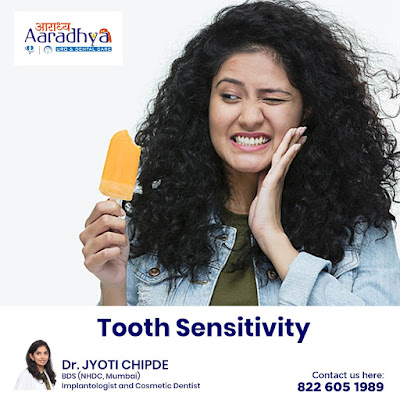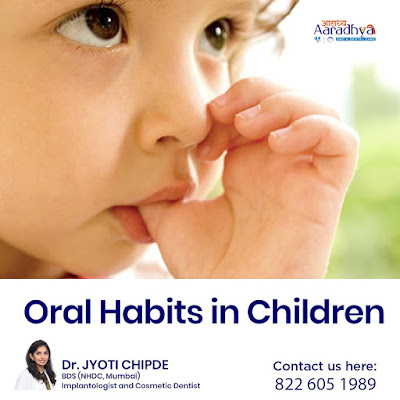They are annoying and painful and there are plenty of things that can cause them such as bacterial, viral or fungal infections. A loose orthodontic wire, a denture that doesn't fit, or a sharp edge from a broken tooth or filling may also be the culprit.
Mouth sores may be symptoms of a disease or disorder. A dentist should examine any mouth sore that lasts a week or longer. Among the most common mouth sores are:
Apthous Ulcers / Canker sores: Small ulcers with a white or gray base and a red border. Unlike cold sores, canker sores appear inside the mouth. And, they are not contagious. There may be only one canker sore or several and they often return Their exact cause is uncertain but some experts believe that immune system problems, bacteria or viruses may be involved.
Fatigue, stress or allergies can increase the likelihood of a canker sore. A cut caused by biting the cheek or tongue, or reactions from hot foods or beverages may contribute to canker sore development Intestinal problems, such as ulcerative colitis and Crohn's disease, also seem to make some people more susceptible.
Treating Apthous Ulcers / Canker Sores: They usually heal on their own after a week or two, but an outbreak may occur. Over-the-counter topical anesthetics and antimicrobial mouthrinses may provide temporary relief. Stay away from hot, spicy or acidic foods that can irritate the sore. Antibiotics and some oral bandages can reduce secondary infection.
Cold sores: Annoying and painful, cold sores, also called fever blisters or Herpes simplex, are groups of fluid-filled blisters. They often erupt around the lips and sometimes under the nose or around the chin. Cold sores caused by herpes virus type 1 are very contagious. The initial infection (primary herpes), which often occurs before adulthood, may be confused with a cold or flu and can cause painful lesions to erupt throughout the mouth.
Once a person is infected with primary herpes the virus stays in the body and causes occasional attacks. For some people, the virus remains inactive. Recurring herpes lesions look like multiple tiny fluid-filled blisters (cold sores) that most commonly appear around the edge of the lips. An attack may follow a fever, sunburn, skin abrasions or emotional upset.
Treating cold sores: Cold sore blisters usually heal in a week by themselves. Over-the-counter topical anesthetics can provide some reliel. Prescription antiviral drugs may reduce these kinds of viral infections.
What's the difference between a Aphthous Ulcers and a cold sore?
Canker sores are often confused with cold sores. An easy way to distinguish between the two is to remember that canker sores occur inside the mouth, and cold sores usually occur outside the mouth.
An Aphthous Ulcer is a small
ulcer with a white or gray base and red border. There can be one or a number of sores in the mouth. Aphthous Ulcers are very common and often recur.
A cold sore, which is also called fever blister or herpes simplex, is composed of groups of painful, fluid-filled blisters that often erupt around the lips and sometime under the nose or under the chin. Cold sores are usually caused by herpes virus type I and are very contagious.
Apthous Ulcers usually heal in about a week or two. Rinsing with antimicrobial mouthrinses may help reduce the irritation. Over-the-counter topical anesthetics can also provide relief. Cold sores usually heal in about a week. Over-the-counter topical anesthetics can provide temporary relief and prescription antiviral drugs may reduce these kinds of viral infections.
Leukoplakia: Thick, whitish-color patch that forms on the inside of the cheeks, gums or tongue These patches are caused by excess cell growth and are common among tobacco users. They can result from imitations such as an ill-fitting denture or the habit of chewing on the inside of the cheek. A danger is that leukoplakia can progress to cancer. Your dentist may recommend a biopsy if the patch appears threatening.
Treating leukoplakia: The dentist examines the lesion and checks the biopsy results to help determine how to manage the disease. Treatment begins with removing the factors that contribute to the lesion: quitting tobacco or replacing ill fitting dentures or bridges.
Candidiasis: This fungal infection (also called moniliasis or oral thrush) occurs when the yeast Candida albicans reproduce in large numbers. It is common among denture wearers and most often occurs in people who are very young, elderly, debilitated by disease, or who have a problem with their immune system. People who have dry mouth syndrome are very susceptible to candidiasis. Candida may flourish after antibiotic treatment, which can decrease normal bacteria in the mouth.
Treating candidiasis: Control focuses on preventing or controlling the conditions that caused the outbreak. Good oral hygiene is essential. Clean dentures to remove Candida and remove them at bedtime. Saliva substitutes and prescription medications may be helpful when the underlying cause is incurable or unavoidable.
Dr. Jyoti Chipde is one of the
best doctors for tooth pain treatment in Indore. She provides Sports Dentistry, Bridal Dentistry,Cosmetic Dentistry, Gum Disease Treatment and
Dental implants in Indore at affordable price. If you are looking the best Kids dentist in Indore, come to the Aaradhya Dental Care. Book an appointment today call us 8226051989, 7389501402 for more information.
Please go through our social media :
like our page to know more about Dentist
Please do follow on Instagram





Comments
Post a Comment